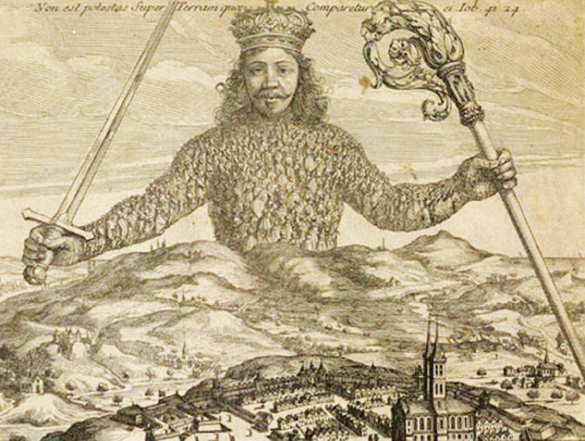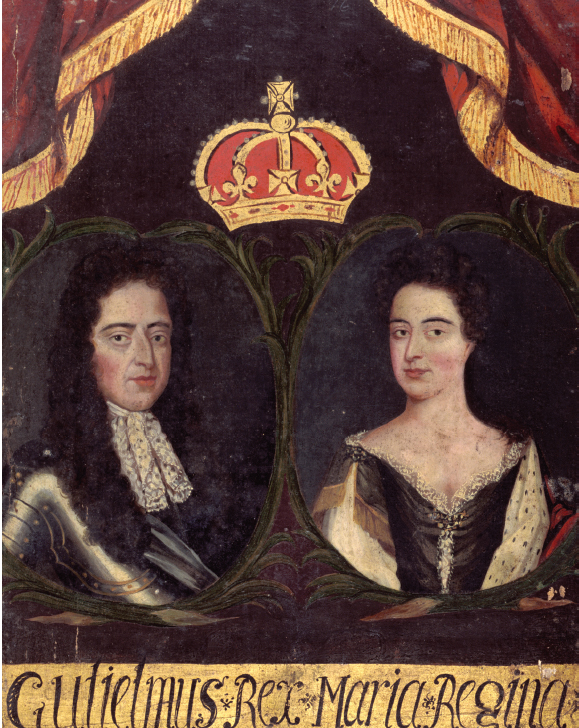America’s History: Printed Page 86
America: A Concise History: Printed Page 73
America’s History: Value Edition: Printed Page 71
The Glorious Revolution in England and America

Fortunately for the colonists, James II angered English political leaders as much as Andros alienated colonists. The king revoked the charters of English towns, rejected the advice of Parliament, and aroused popular opposition by openly practicing Roman Catholicism. Then, in 1688, James’s Spanish Catholic wife gave birth to a son. To forestall the outcome of having a Catholic heir to the English throne, Protestant bishops and parliamentary leaders in the Whig Party invited William of Orange, a staunchly Protestant Dutch prince who was married to James’s Protestant daughter, Mary Stuart, to come to England at the head of an invading army. With their support, William led a quick and nearly bloodless coup, and King James II was overthrown in an event dubbed the Glorious Revolution by its supporters. Whig politicians forced King William and Queen Mary to accept the Declaration of Rights, creating a constitutional monarchy that enhanced the powers of the House of Commons at the expense of the crown. The Whigs wanted political power, especially the power to levy taxes, to reside in the hands of the gentry, merchants, and other substantial property owners.

To justify their coup, the members of Parliament relied on political philosopher John Locke. In his Two Treatises on Government (1690), Locke rejected the divine-right monarchy celebrated by James II, arguing that the legitimacy of government rests on the consent of the governed and that individuals have inalienable natural rights to life, liberty, and property. Locke’s celebration of individual rights and representative government had a lasting influence in America, where many political leaders wanted to expand the powers of the colonial assemblies.
Rebellions in America The Glorious Revolution sparked rebellions by Protestant colonists in Massachusetts, Maryland, and New York. When news of the coup reached Boston in April 1689, Puritan leaders and 2,000 militiamen seized Governor Andros and shipped him back to England. Heeding American complaints of authoritarian rule, the new monarchs broke up the Dominion of New England. However, they refused to restore the old Puritan-dominated government of Massachusetts Bay, instead creating in 1692 a new royal colony (which included Plymouth and Maine). The new charter empowered the king to appoint the governor and customs officials, gave the vote to all male property owners (not just Puritan church members), and eliminated Puritan restrictions on the Church of England.
In Maryland, the uprising had economic as well as religious causes. Since 1660, falling tobacco prices had hurt poorer farmers, who were overwhelmingly Protestant, while taxes and fees paid to mostly Catholic proprietary officials continued to rise. When Parliament ousted James II, a Protestant association mustered 700 men and forcibly removed the Catholic governor. The Lords of Trade supported this Protestant initiative: they suspended Lord Baltimore’s proprietorship, imposed royal government, and made the Church of England the legal religion in the colony. This arrangement lasted until 1715, when Benedict Calvert, the fourth Lord Baltimore, converted to the Anglican faith and the king restored the proprietorship to the Calvert family.
In New York, a Dutchman named Jacob Leisler led the rebellion against the Dominion of New England. Initially he enjoyed broad support, but he soon alienated many English-speaking New Yorkers and well-to-do Dutch residents. Leisler’s heavy-handed tactics made him vulnerable; when William and Mary appointed Henry Sloughter as governor in 1691, Leisler was indicted for treason, hanged, and decapitated — an act of ethnic vengeance that corrupted New York politics for a generation.
The Glorious Revolution of 1688–1689 began a new era in the politics of both England and its American colonies. In England, William and Mary ruled as constitutional monarchs; overseas, they promoted an empire based on commerce. They accepted the overthrow of James’s disastrous Dominion of New England and allowed Massachusetts (under its new charter) and New York to resume self-government. In 1696, Parliament created a new body, the Board of Trade, to oversee colonial affairs. While the Board of Trade continued to pursue the mercantilist policies that made the colonies economically beneficial, otherwise it permitted local elites to maintain a strong hand in colonial affairs. As England plunged into a new era of European warfare, its leaders had little choice but to allow its colonies substantial autonomy.
EXPLAIN CONSEQUENCES
Question
How did the Glorious Revolution affect relations between England and its colonies?